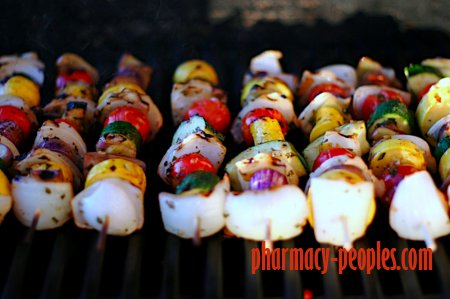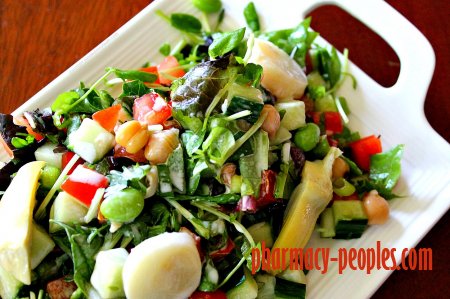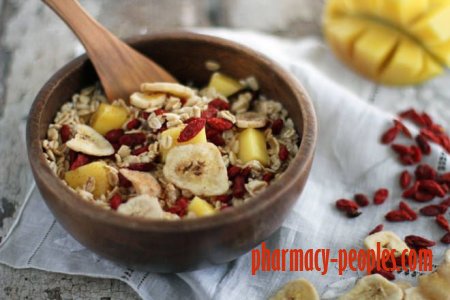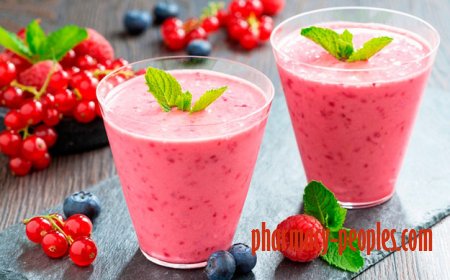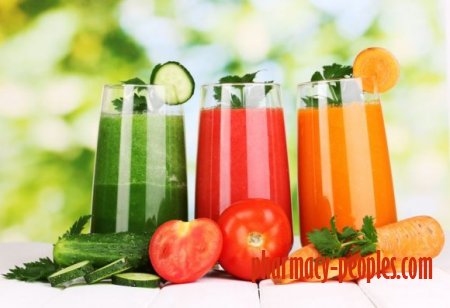18 Ways To Sneak More Plants Into Your Diet
It doesn't matter what food philosophy you follow, whether WFPB (whole-food plant-based), ketogenic, Bulletproof, LCHF (low-carb high-fat), WSHL (whole-starch low-fat), paleo, or Mediterranean—the centerpiece of all diets promoting health unite at recommending eating a large amount of plants.
Even the USDA MyPlate and the better version from the Harvard School of Public Health have at least 50 percent of every meal coming from vegetables and fruits. So how is the American public doing at meeting the targets for plant food intake? Miserably. In a survey by the American Heart Association, under 1 percent of children achieve a healthy eating pattern and the number for adults was a shocking 1.5 percent. To win the war on chronic diseases, obesity, type 2 diabetes, heart disease, hypertension, and dementia, all nutrition camps must join hands to teach practical ways to get more plant-based meals and snacks into our routines. Here are 18 ways to get more fruits and vegetables:
1. Make the main dish a salad.
Use dark leafy greens, edamame, chickpeas, cannellini beans, and seeds. Add anything else that makes your diet satisfying.
2. Have a large supply of frozen vegetables and fruits.
Keep them in the freezer, buying organic if possible, to use for side dishes, main dishes, smoothies, and stir-fry.
3. Make fruit your late night snack.
Frozen grapes and bananas are delicious, and mixed berries make a great dessert. You can make frozen banana ice cream in a blender or a dedicated kitchen appliance.
4. Grab a potato.
The potato has been maligned but has propelled several stunning examples of weight loss and disease reversal. A baked potato topped with beans, salsa, or greens is a fun meal for the whole family.
5. Enjoy breakfast with fruit.
I would recommend that no bowl of cereal or oatmeal be without berries, dates, bananas, or raisins. Although dried fruit needs to be used in moderation, children often will eat them over whole fruits so it's a start!
6. Get a fun fruit bowl.
Put brightly colored fruits on the counter and suddenly they will take the place of cookies and crackers. Plan special trips to the produce market to keep the fruit bowl refilled.
7. Create a salad color wheel.
Although even limp iceberg lettuce tops french fries, a properly designed salad with orange peppers, mandarin orange slices, grape tomatoes, blueberries, and cauliflower florets will resemble a prism of colors and provide healthy results.
8. Use pizza as a decoy.
The base of a pizza is just an excuse for arugula, garlic, pine nuts, sun-dried tomatoes, avocado slices, peppers, mushrooms, and eggplant. Make your pizza a pizza salad.
9. Take advantage of smoothies.
You knew this was coming. With enough blueberries or strawberries, even a sizable handful of spinach or baby kale are hidden from a child's view.
10. Try a veggie wrap.
Need a fast meal? Take a steamed collard green or a 100 percent whole wheat tortilla and pack it with hummus, vegetables, and salsa. I even add mustard. Kids love the collards and they hold up well.
11. Snack on vegetables.
Planning ahead for lunches, trips, and school events with handy vegetables and fruits is key. A bag of grapes, carrot sticks, celery, and broccoli florets can be winners.
12. Have fun with kabobs.
Grilled vegetables kabobs are colorful and offer tremendous variety to introduce new foods like mushrooms.
13. Ask for lettuce instead.
In most Middle Eastern cafes, you can pass on the pita and ask for Romaine lettuce to dip into eggplant or chickpea dips like hummus.
14. Grill your fruit.
While grilled meat is known to be unhealthy, grilled pineapple, peaches, bananas, and even apples hold up well and open a new door to more servings of plants.
15. Grate your veggies.
You can take any dish like a lasagna or meatloaf and grate spinach, carrots, and squash into the prep to add the fiber and nutrients found only in plants.
16. Make some soup.
Preparing a big pot of homemade vegetable or bean soup on a Sunday can power the whole week as a main course, lunch, or snack. Add in dark greens to get all the health benefits.
17. Never make a sandwich without veggies.
Make a rule: No sandwich should be without a fruit or vegetable. Even a PB&J can have banana slices. Certainly, a burger with a big lettuce leaf and a tomato is better than just a burger.
18. Don't forget about juice.
It is easy to find cold-pressed vegetable juices in many stores and markets that are entirely or mainly vegetable. Some have been processed by HPP, which gives them a few months of shelf time. Beware the brands that are pasteurized and mainly fruit. They are sugar bombs. Juice your vegetables and eat your fruit whole.
Eating five or more servings of fruits and vegetables a day is the best insurance against falling prey to the illnesses and obesity that rob us of our wellness. Not only can cardiac disease including heart attack be prevented by produce, but lifespan itself is predicted by the number of servings a day we eat from the garden. Even the worst meal is made better when you add a plant to it.
